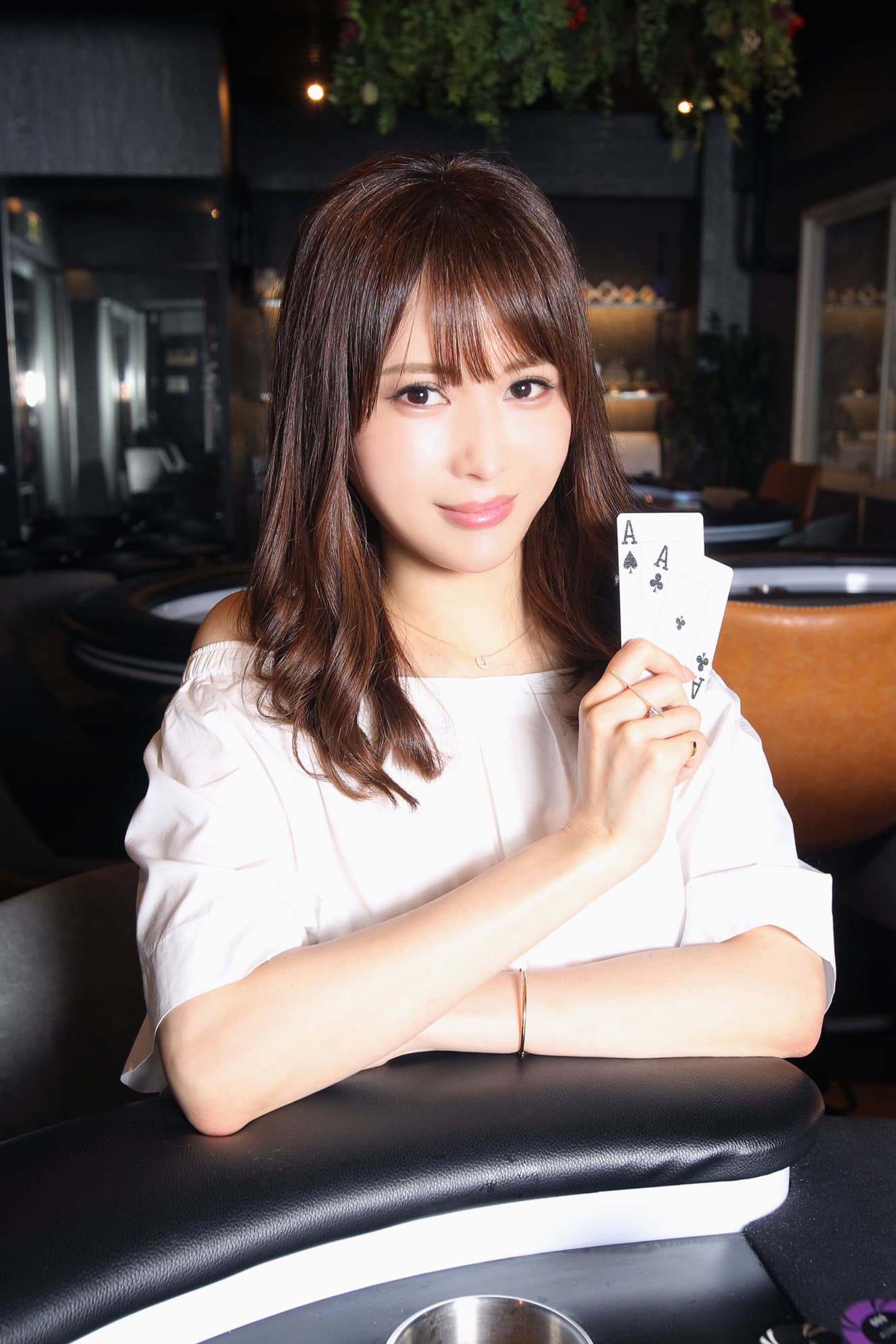Shina Okamoto From Kyoto University Won Poker’s World Championship!
Kyoto University graduate and former foreign investment banker. A business elite girl turned into the world's number one poker player!

In poker, too, the person who learns the most wins.
On July 2 (Japan time), Japanese player Shina Okamoto won the women-only event of the World Series of Poker (WSOP), the world’s largest poker event held in Las Vegas, USA.
Her cool play and oriental beauty at the final table, which was attended by the best players in the world, immediately caught the world’s attention. We interviewed Okamoto the day before she left Japan, and asked her about her enthusiasm for the tournament and the appeal of poker.
Born in Saitama Prefecture, Okamoto entered the difficult Department of Architecture in the Faculty of Engineering at Kyoto University for the simple reason that she wanted to live alone. After graduation, he worked for a foreign investment bank, where he first encountered poker.
I think the appeal of the game of poker is that it requires both luck and skill. It depends on luck, but the more you understand about game theory, the better your chances of winning. There aren’t many games where you can play with the best regardless of your opponent’s age, gender, or physique, and there aren’t many games where you can make so much money. Actually, I quit my job last year. So my current title is “NEET who loves poker. I don’t call myself a ‘pro’ yet. But in the year and a half since I started living off poker, I’ve been able to earn about 20 million yen, minus travel expenses and tournament entry fees.”
She now spends about a third of the year overseas, playing in tournaments.
There are many words that spread from poker and have become popular, such as “poker face,” in which the player maintains an expressionless face like an iron mask so that the opponent cannot guess what is in his or her mind, and “bluff,” in which the player bluffs to show that he or she has a strong hand even though he or she has only weak cards in hand. At the table, you are playing against your opponents, so to speak. I believe that the experience of playing poker may have helped him in his personal and professional relationships.
I keep my face expressionless when I play, and I pay attention to the way I look at my opponents. For example, if I pay too much attention to my opponent’s chips, I’m thinking about how many chips I can take from them = they know I have a strong hand. …… For some people, if their heart beats faster due to lying or nervousness, it can show up in the pulse in their neck. But it’s not so much that they become able to bluff in real life or anything like that (laughs). Also, in reality, poker is not as much about gaining information from your opponent’s facial expressions and demeanor as people think. Based on game theory, you basically make decisions based on information from the exchange of chips. (In other countries, there are many online poker games in which players do not look at their opponents’ facial expressions, but only receive information from the exchange of chips.
In poker, players check their own hand, predict their opponents’ hands, and decide the betting amount according to the cards they have made.
Sometimes you get lucky and keep winning in a game where the odds are against you, and of course the opposite is true. When I play poker and experience “ups” and “downs” that are far from the odds, I sometimes wonder if the same thing might actually be happening in life.
In poker, you can calculate the odds of winning, but in life, you don’t know what the odds are. In the case of a lack of results, you may think that you are incompetent, when in fact you are simply down, or, on the other hand, you may think that you are competent, when in fact you are up, and be proud of yourself. Through poker, I have come to see life that way.”
With these words, she left for Las Vegas the next day, where the WSOP was being held.
It was on July 2, about two weeks after the interview, that she achieved her long-cherished dream of becoming the world’s number one player. Her “upswing” is far from over.

From the July 5 and 12, 2024 issue of FRIDAY
Interview and text: Yuji Yanagawa (nonfiction writer) PHOTO: Yuri Adachi Photography cooperation: Nishiazabu eight+, Nishiazabu, Tokyo